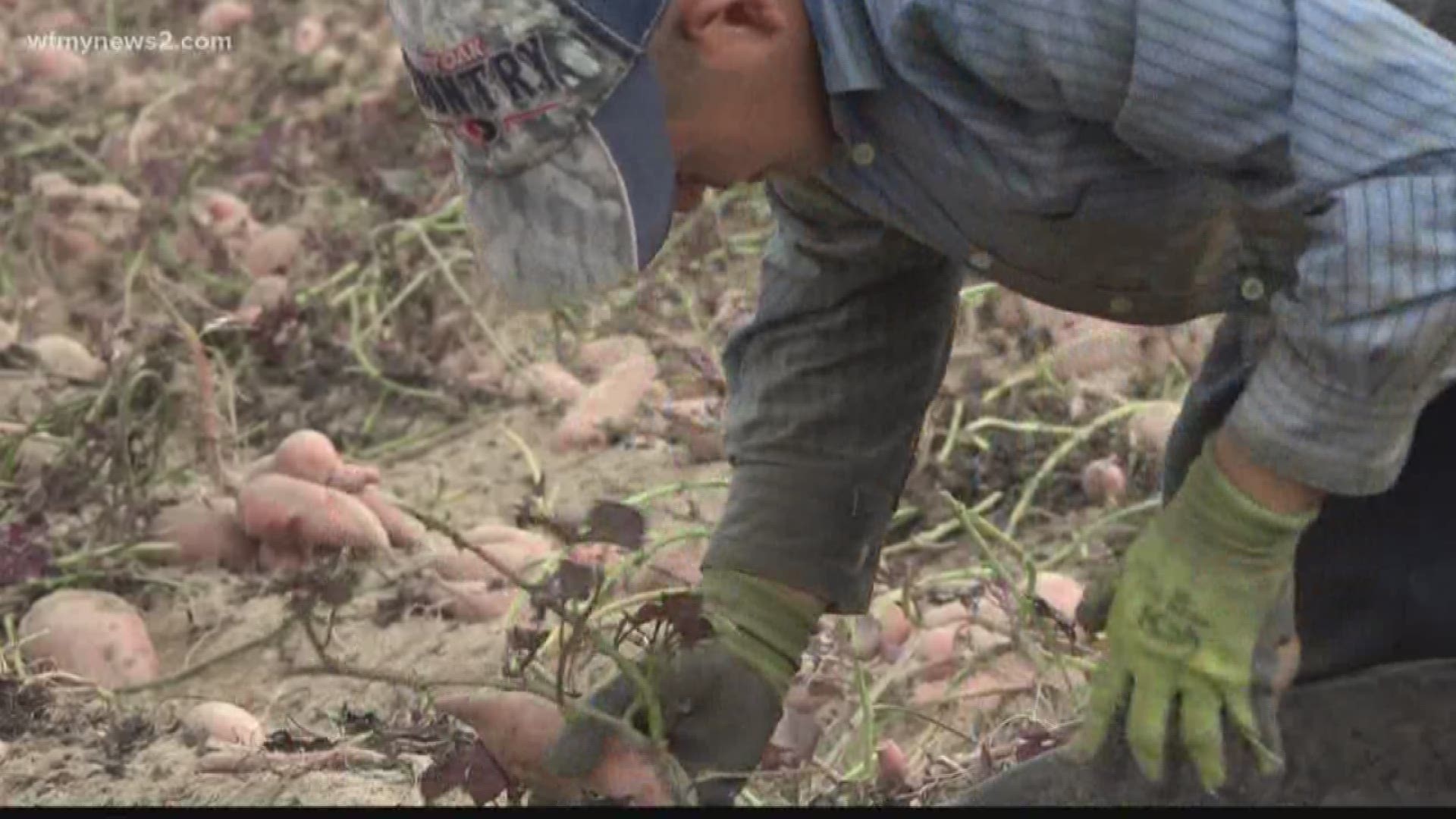ANGIER, NC:: Spend a day with Clay Gardner and you will walk about 10 miles… before lunch. The 4th generation farmer is always moving, such is the life of a farmer, “It’s a way of life, I think,” said Gardner.
At DMG Turf and Farms they produce soy beans, sweet potatoes, sod and tobacco. The farm always buzzing with activity, “I think the lord picked me to farm,” said Gardner.
This year has been particularly tough on North Carolina Farmers. Hurricane Florence wreaking havoc on thousands of farms across the state. Livestock losses could top $23-million while vegetable losses will surpass $26-million.
Tobacco crops were some of the hardest hit, loss estimates could top $986-million, there are some pretty big hardships on some farms,” said Gardner. He was able to harvest about one-third of his crop before the storm. He estimates his loss will be right around $300,000 in profits, “It’s devastating, makes you feel pretty down,” said Gardner.
The total loss from Hurricane Florence in North Carolina alone will top $1-billion, some farms losing more $2-million, “It just beat it (crops) into submission,” said Don Nicholson with the North Carolina Department of Agriculture and Consumer Services.
Kent Revels has been farming more than 40 years in Cumberland County. This year’s crop of peanuts held up fine even after Florence rolled through, but his tobacco drop was decimated, “It was devastating, not bad, devastating,” said Revels.
Insurance will cover about 75-percent of his lost profits, but Revels estimates the hurricane cost him around $500,000 in profits, “I can’t make up that kind of loss, it will take a long time, long time,” said Revels.
North Carolina Governor Roy Cooper has asked for help and President Donald Trump has approved a disaster declaration. The declaration is designed to help residents and businesses including farmers, but the process is often difficult, “There will be something (money) available, but a lot of the time it’s too late (for farmers),” said Nicholson.
As for consumers the price of some crops affected could go up slightly but for the most part the impact on us will be minimal. Our country is insulated against a natural disaster like this one where only a few states were affected. Other farms around the country will be able to make up for the loss without a significant increase in demand or cost.

